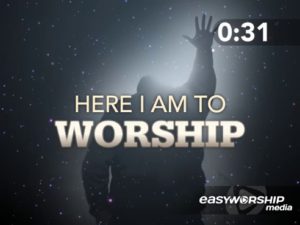I was fascinated by this therapist’s ad because our goals–change–are identical. What you may not have thought of was using “if-then” statements to affect change. I didn’t until I preached through 1 & 2 Chronicles.
When–not if–you arrive at 2 Chronicles 15 you encounter one of the most fascinating conditions or “if clauses” found in Scripture. Verse 2 reads, “If you seek him, he will be found by you, but if you forsake him, he will forsake you.”
Depending on your theology, that statement spoken by a Spirit-filled Azariah to King Asa can cause some problems. If you feel the need to run to the NT (as I did, if I remember correctly) have everyone look at 2 Timothy 2:12-13 which reads:
“if we endure, we will also reign with him; if we deny him, he also will deny us; if we are faithless, he remains faithful—for he cannot deny himself.”
I didn’t say turning there would solve all the problems.
But 2 Chronicles 15 provides a wonderful opportunity for a faith-family to consider the condition for experiencing salvation-rest promised in Scripture.
Verses 1-2 describe the condition. The key to success in the Christian life is having the Lord with you in an OT sense. When the Lord was with His people He fought hard for them and they always came out on top. The opposite was also true.
The condition is God’s people being “with him” or seeking Him. Both describe a person that looks to Him alone for provision, protection, and direction in life. It’s an important part of being a Christ-follower.
Verses 3-7 describe life without God’s active, powerful presence. It’s not a pretty sight. Verse 6 says, “They were broken in pieces.”
Finally, verses 8-19 describe drastic measures taken to ensure God’s powerful presence remains. Those that didn’t seek the Lord were put to death! (v. 13) and “Even Maacah, his mother, King Asa removed from being queen mother because she had made a detestable image for Asherah” (v. 16). Wow! That’s serious spiritual reform.
And when you preach on this OT condition your listeners will catch how important it is to become part of Asa’s kingdom where God fights hard for His own. I hope you’ll do this so God receives glory in the church and in Christ Jesus (Ephesians 3:21).
Randal







